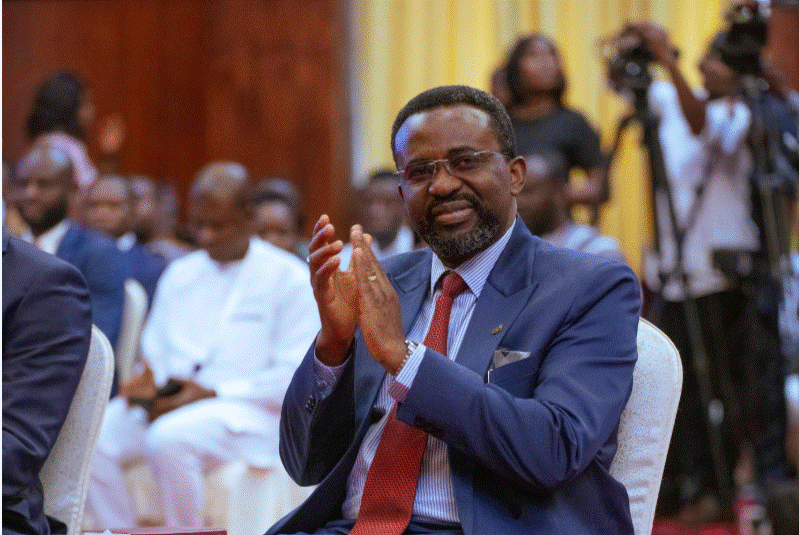The Governor of the Bank of Ghana, Dr Johnson Asiama has said that one of his priority areas is the need to realign our regulatory mandate to promote greater levels of financial intermediation to support economic growth.
Speaking after his swearing-in on Tuesday, February 25, he said “While our banking sector remains broadly stable after the recent crises, it requires targeted reforms to address legacy challenges and ensure continued resilience.”

Under his stewardship, Dr Asiama said they shall enforce strict prudential regulations while fostering an enabling environment for responsible lending and innovation in the banking sector.
“We shall tackle the problem of high non-performing loans (NPLs) and weak risk management practices in the industry; work closely with banks to reduce the high incidence of cybersecurity breaches and strengthen capital adequacy requirements; update the Banks and Specialized Deposit-Taking Institutions Act, 2016 (Act 930) which was passed during your tenure in 2016, to enhance our resolution
framework, and ensure that distressed institutions are effectively managed while maintaining financial stability; work with all stakeholders – including banks, financial institutions, technology partners, businesses, and regulators – to ensure that every Ghanaian; from traders to entrepreneurs, benefit from a financial system that is modern, fair, and built to last,” he said.

Dr Asiama further said that his priority is also on the need to boost financial inclusion and innovation to
promote inclusive economic growth, reduce poverty, empower individuals, and ensure the stability and competitiveness of the financial system.

“It is gratifying to note that Ghana is well-poised to become a regional hub for financial technology
and digital assets; and this transformation agenda will be pursued with appropriate safeguards and policies to ensure financial stability, while fostering innovation in the payment ecosystem.”

He also indicated that his priority is on the need to preserve exchange rate stability and limit excessive volatility in the rates.
Speaking after his swearing-in on Tuesday, February 25, he said “The days of currency speculation and exchange rate instability must come to an end, and we are poised to ensure this happens. ”

In this regard, he said, the Bank of Ghana under his leadership will engineer a well-functioning, and stable foreign exchange market to support economic activity.

Among others, he said they “will implement strategic interventions, including the enactment of a new foreign exchange law to replace the Foreign Exchange Act 2006 (Act 723); implement targeted market operations to eliminate leakages of forex and improve our reserves management; deepen our participation in the Pan African Payment and Settlement System (PAPSS), allowing Ghanaian businesses to trade across Africa using local currencies instead of always relying on the US dollar; implement further reforms in the remittance space and collaborate with the Fintech and remittance agencies to harness remittances as a major source of FX; introduce structured and transparent systems that ensure fair pricing and fair distribution in the forex market; leverage our gold reserves and strategic foreign assets more effectively to support the Ghana cedi; reform the Bank of Ghana’s Domestic Gold Purchase Programme to improve efficiency, enhance reserve accumulation, and increase transparency in gold transactions.”

Through these measures, he said they will build a more resilient foreign exchange market that inspires confidence among investors and businesses.
